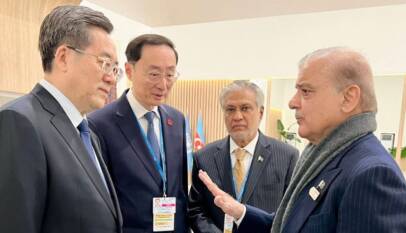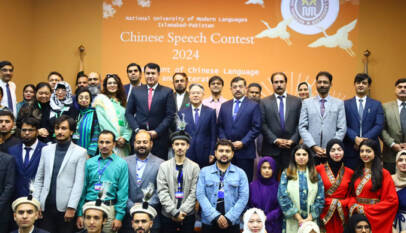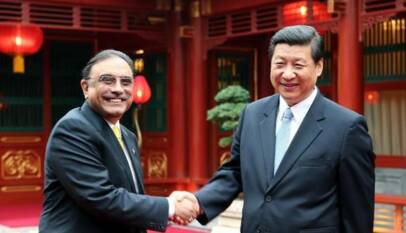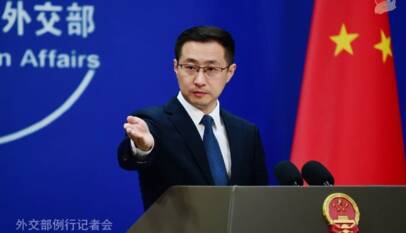CGGC to facilitate China-Pakistan relationship
President of China Gezhouba Group Company (CGGC), Chen Xiaohua said that company will integrate in to China and Pakistan’s overall cooperation and contribute more to Pakistan’s economic and social development. Chen made the remarks when meeting with Pakistani Ambassador to China Moin ul Haque in Wuhan, where Ambassador Haque noted that a number of key projects invested and constructed by CGGC have played an important role in boosting Pakistan’s economic growth and creating jobs.
ISLAMABAD: China Gezhouba Group Company (CGGC) will integrate into China and Pakistan’s overall cooperation and contribute more to Pakistan’s economic and social development, said Chen Xiaohua, President of CGGC.
Chen made the remarks when meeting with Pakistani Ambassador to China Moin ul Haque in Wuhan, according to report published by China Economic Net (CEN).
Haque noted that a number of key projects invested and constructed by CGGC have played an important role in boosting Pakistan’s economic growth and creating jobs. He expected CGGC to continue engaging in the construction of the China-Pakistan Economic Corridor (CPEC) and write a new chapter for Pak-China friendship. CGGC first entered Pakistan in 2003 and started Neelum Jhelum Hydropower Project, its first hydropower project in 2008, according to Lyu Xiufeng, General Manager of Pakistan Branch of CGGC.
Neelum Jhelum Hydropower Project is called as Pakistan’s Three Gorges project (China’s massive multi-functional water control facility on the Yangtze River, also the world’s largest hydroelectric power project).
It took one decade for CGGC to complete this mega project because of its a high difficulty level of construction with 90 percent of the construction lying underground in high mountainous areas. During 2008-2018, workers of CGGC had overcome one obstacle after another, by world-class technology, excellent capability and unremitting efforts.To ensure Neelum-Jhelum project’s security, CGGC chose the scheme of low dam and long diversion tunnel when designing the dam type. The length of its diversion tunnel is 68 kilometers, rare in the world.The hardest part, about 17 km, to construct, is beneath a mountain. By the conventional drilling and blasting method, it would face huge challenges and its construction process would also prolong. To solve the world-class technological problem of constructing this super long diversion tunnel, CGGC decided to use the state-of-the-art tunnel boring machine (TBM) in Pakistan for the first time.
Many famous experts in rock and soil mechanics and geologists once said that there had been no successful precedent of TBM tunneling in the Himalayas range, the youngest and most geologically active region in the world. Anyone who could successfully use TBM in the Himalayas would make history in tunnel construction.
In 2012, Pakistan’s first TBM came to the site of the Neelum-Jhelum hydroelectric project. Besides the technological problems, the Neelum-Jhelum project had been hit by four major natural disasters during the decade, each of which had pushed the project to the brink of failure, according to Feng Xinglong, vice general manager of CGGC, in charge of this project during March 2009 to December 2013.
PM Shehbaz reaffirms commitment to safety of Chinese nationals
BAKU: Prime Minister Shehbaz Sharif reassured China’s Vice Premier Ding Xuexiang on Wednes…













